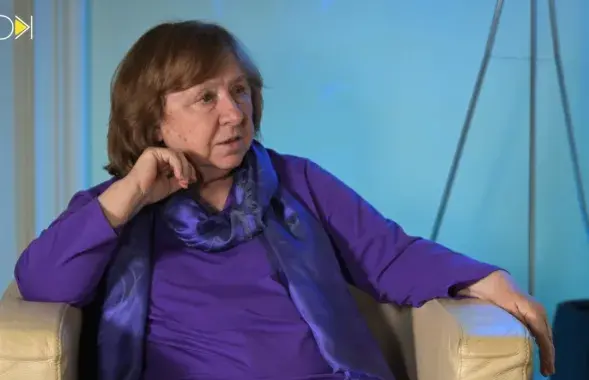Pavel Svyardlou.Akrestsina Diaries. Episode 2: Court Trial
What to do if you cannot find a lawyer? What questions does a judge ask? How to "catch" witnesses on discrepancies? See the journalist's personal experience.
Akrestsina Diaries. Chapter 1: Detention
Дзённікі Акрэсціна. Эпізод 3: Інструкцыя па экслуатацыі
Дзённікі Акрэсціна. Эпізод 4: Слоўнік
Akrestsina cooks: Daily norm―19000 per prisoner. 3 porridges, soup, cutlet
I started wondering why they arrested me already at the police department. No mass actions were planned in the near future; the only event was the July 3 parade. So I counted the days left before the parade- 11. So I understood I would have to make Akrestsina my home for a long time to come.
Court trial
We approached the Maskouski district court of Minsk through the staff-only gate. An animated convoy guard disappeared at once to solve some issues. Later he did not hide that he had good relations with the court's secretary. Soon the judge was free and another policeman took me to the court hall. There was a cage right in front of us, and they put me inside. Later it turned out that they had made a mistake as the cage was there for the criminals. As for administrative offenders, they take seats at the first row in the hall, near the audience, during the trials. So, object if they put you in a cage!
I watched the judge and the secretary walking into the hall from behind the bars. There was no one else in the hall! Naturally, this plays against the accused - it is easier to convict a person when no one sees it! The judge asked from the start whether I had any appeals. I replied that I wanted to call a lawyer. The judge asked to provide a concrete name. I told it (think today, who can defend you in court!), and the judge announced a 40-minutes break.
Can a person who is accused of an administrative violation ask for more time to find a lawyer?
"He or she can ask for more. However, it's not necessarily that the judge will give him or her this time. It is not prescribed in the Administrative Code, unlike the Criminal Code. They can just tell you "You have an hour and then we start consideration of the case", - lawyer of the legal advice office No. 2 of the Central district of Minsk Volha Savich explains to Euroradio.
A lawyer: to be or not to be?
Only 40 minutes! Naturally, this is not enough to find a lawyer, to make an agreement with him and to take the lawyer to the court. Moreover, the lady to whose defense I counted upon was unavailable by phone... The minutes passed, the animated convoy guard pressed: "If you cannot find a lawyer, agree for a lawyer-on-duty, or refuse from the legal aid at all," - he insisted.
At this very moment, my colleagues from Euroradio found a lawyer and were taking her to the court. However, I knew nothing about this! They prohibited me to call journalists: "We don't need press here". I decided to refuse from the lawyer-on-duty. First, I was not sure that he would defend me properly. Secondly, having watched many Hollywood movies I had a dream to defend myself! Thirdly, the lawyer would have difficulties to understand the whole case on the spot.
"Administrative processes are quite complicated procedurally for the lawyers. The lawyers are involved into criminal trials much more often. It often turns out that the lawyers are deprived of an opportunity to speak at an administrative trial as there are no disputes. So if a lawyer doesn't know when to start speaking then such not very funny casus may happen", - Volha Savich supports me.
However, I made another mistake here. You should not refuse from the services of the lawyer-on-duty. He or she is not a person who is sitting in the court waiting when they would call him for fulfillment of some formal obligations. In any case, they will have to summon this lawyer from a legal advice office.
Volha Savich: "Each lawyer in each legal advice office sometimes performs the duties of this lawyer-on-duty. However, it is a very rare occurrence when people ask for a lawyer at an administrative trial, as the fine that they may pay can be less than they will have to pay to the lawyer. Moreover, even if a person proves that he is not guilty in the administrative offence with the help of the lawyer, the Belarusian legislation provides no compensation of the expenses for the lawyer. However, if rehabilitation is what's important for a person, he needs to call a lawyer".
Admit guilt - lose the right to appeal against the sentence!
The consideration of the case could have been artificially slowed down with appeals. I decided not to do this and this was another mistake - the lawyer arrived only when the judge was already pronouncing the sentence... If I gave her time by filing appeals everything could be different!
"A person can file appeals for summoning witnesses, to confirm the alibi or the position of a person who is subjected to administrative responsibility. If these witnesses are not in the court hall the court should postpone the consideration of the case and summon them. Still, the court can decline such appeal, but this step should be motivated, – head of Minsk regional legal advice office No. 1 Lyudmila Harakhavik tells Euroradio. – Another popular appeal concerns attachment of some written materials to the case. In case another side attaches some written evidence - you can find an appeal to study the case. Then the judge will also announce a break".
The trial went on. I told the judge that I did not admit guilt - it is stupid to confess in something you never did. Admittance of guilt, in theory (not for sure!) could have softened the sentence a bit, but I would lose an opportunity to appeal against it then. I had no hopes that they would consider me innocent on that day. Therefore, I decided to leave myself a chance to claim the sentence in the higher instances later.
I told all this to my cell-mates a couple of days later, but they only laughed at me. According to their experience, the court never reconsiders cases to the benefit of a detainee. The same happened to me: although there was the testimony of the witness of my detention, they declined my appeal in the City Court on July 6. The only hope was for the Supreme Court. Besides, it often takes a convict's side and sends cases for reconsideration.
A tricky question
So we returned to the Maskouski district court. The judge started interrogating the first witness. He emerged from the corridor and signed the paper on unacceptability of false evidence. Then he told his own version of my detention. I realized that my only chance is to catch the witnesses on discrepancies of small details. So I started asking questions. Many questions! When you are sitting in the police department, don't waste time - analyze what happened to you. Think about the small things, in which the testimonies of those who detained you may differ.
Why the special police patrolled the streets in the outskirts of Minsk in the morning although it is not their duty?
Who ordered you to patrol the streets on June 22?
What was the route of your patrol?
Where exactly were you when you heard Sviardlou swearing?
Who was the addressee of his swearing? Did you notice what was the reason for breaking the public order?
How many people participated in the detention of the "hooligan"?
Where did you take the car in which Sviardlou was delivered to the police department?
What was the colour and the model of the car which arrived after your call?
How did you call the car - by a walkie-talkie or by phone?
Are hooligans always transported to police departments in a Volkswagen Transporter with soft chairs?
For how many minutes did you have to wait for the car?
What was Sviardlou doing all this time - did he continue swearing?
The policeman though about the answers from time to time and I started hoping for something. Interrogation of the first witness was over, and the judge asked him whether he wanted to stay in the hall. He answered in the negative and...went out to the corridor where the other witness was waiting for him! I saw them discussing something vividly, and told about it loud. However, the judge did not care: the fact that the witnesses coordinated their testimonies was not even included in the court protocol. Thus, the other witness entered the court hall prepared. The hope to justify myself vanished.
The judge asked whether I knew the circumstances as a result of which the witnesses could tell lies about me. "No," - I replied. - "This is the first time I see them!" This was another mistake. It doesn't matter whether you know the witnesses or not. The judge's question was broader than it seemed to me. Think of who they are, where they live, where they work, where you work and live. Think why they might want to revenge on you.
One foot in the detention center
In the end of the trial I told I was a decent person, that accusation of swearing in public sounded absurd... The judge nodded and went to her office. The secretary and the convoy guard also left. I started talking with "my" policeman. He asked about my salary straightaway. I replied and asked about his salary.
"I earn about 3 million Belarusian roubles", - he says. It is hard to believe that a policeman has such a small salary... I asked why he did not search for better life, why he did not quit the police. And, instead of telling me about patriotism and the best profession ever, he told me it was due to the assignment after the Academy of the Interior Ministry. Like, it would make life more complicated to quit the police until the expiration of the contract.
Meanwhile, the judge came back. The journalists and the lawyer entered the hall together with her - they found me at last. I told the editor-in0chief that I was sure to get 15 days of detention, to prepare him for the worst. The judge confirmed by guess literally in a couple of minutes.
The trial was over. I asked to give me a copy of the court's resolution, thus saving several minutes. I managed to talk to my colleagues, they gave me food and juice - it is not prohibited in the court hall. However, I had to leave the biggest part of the parcel in the front office of the Akrestsina Street detention center. It is prohibited to pass food to the prisoners at all. They even did not let me take bread to the cell with me, let alone sausages.
The next part of the "Akrestsina Diaries" will take place in the detention center. Which laws are in force there, which language it is better to speak, and how to exist there - please see in the next part of our series!















